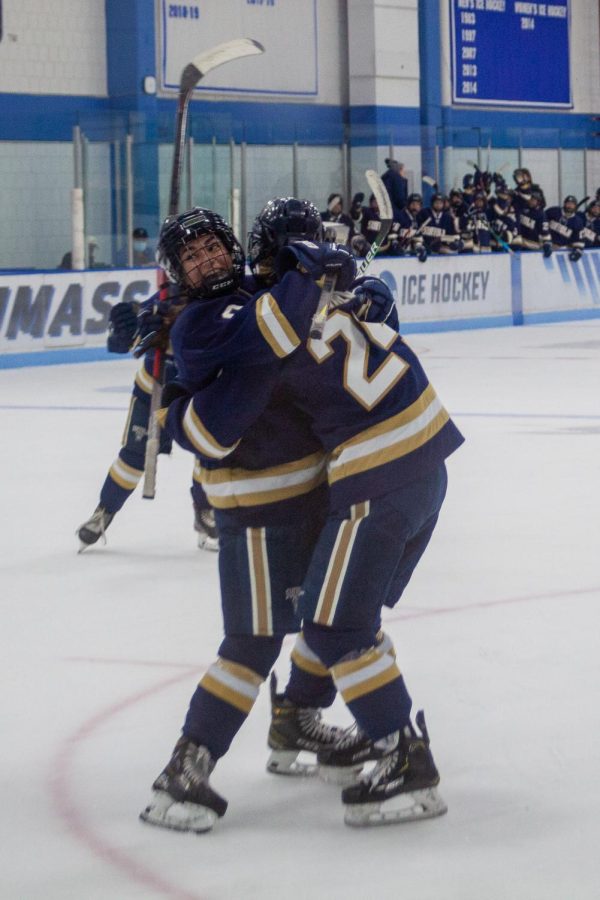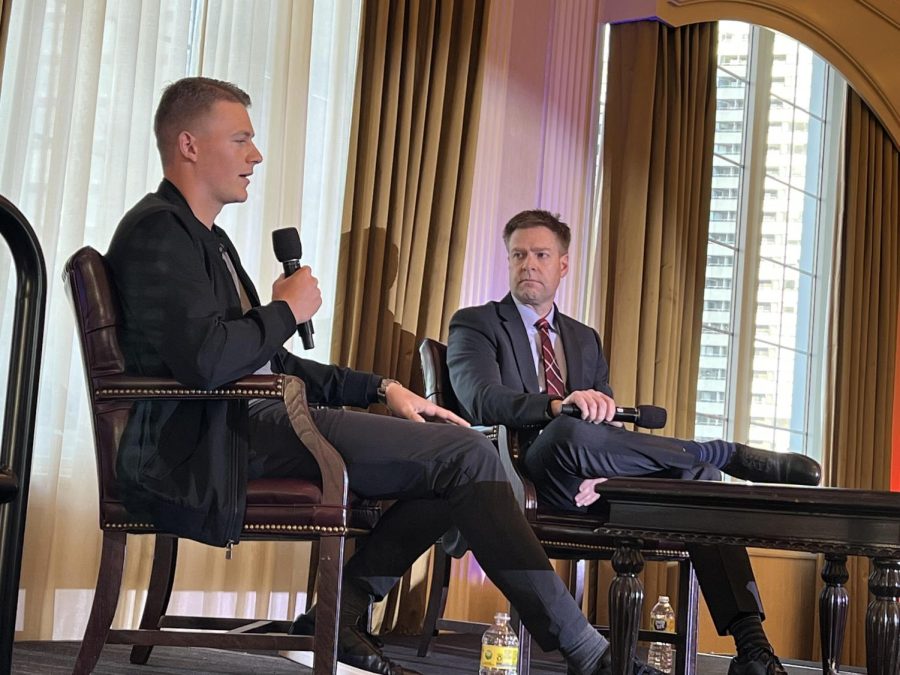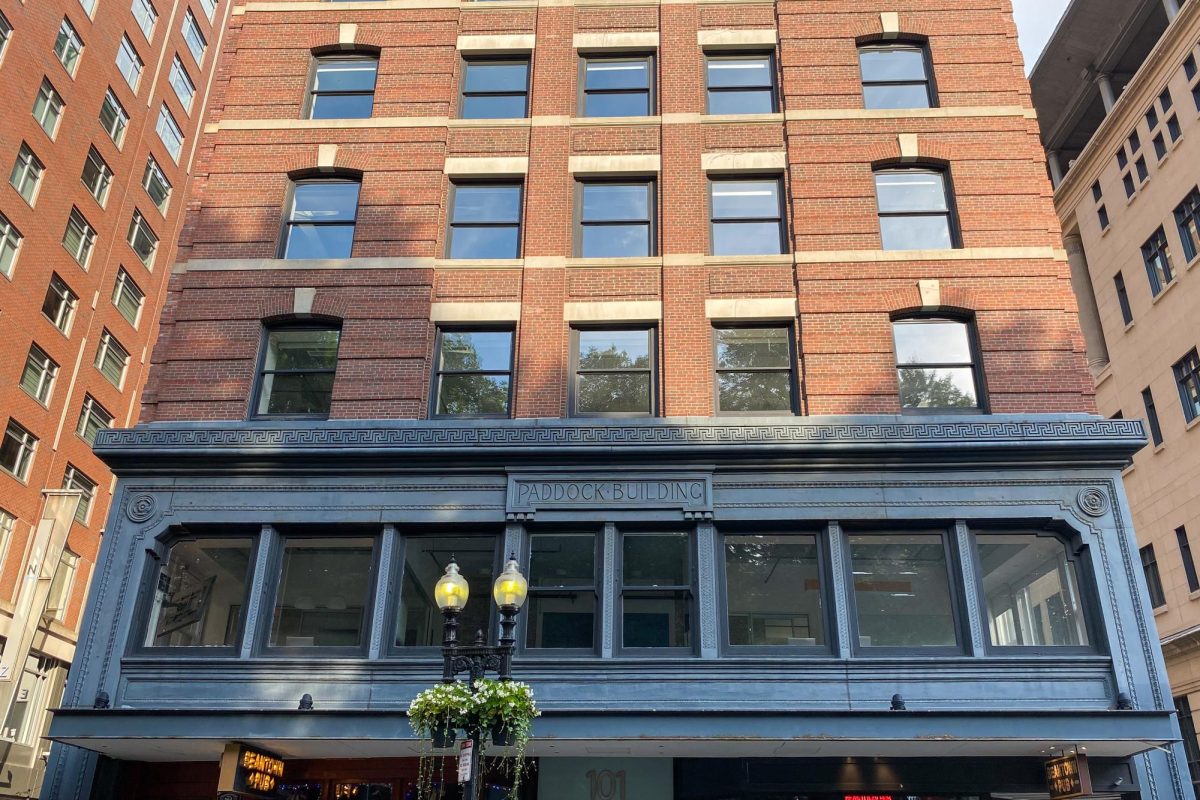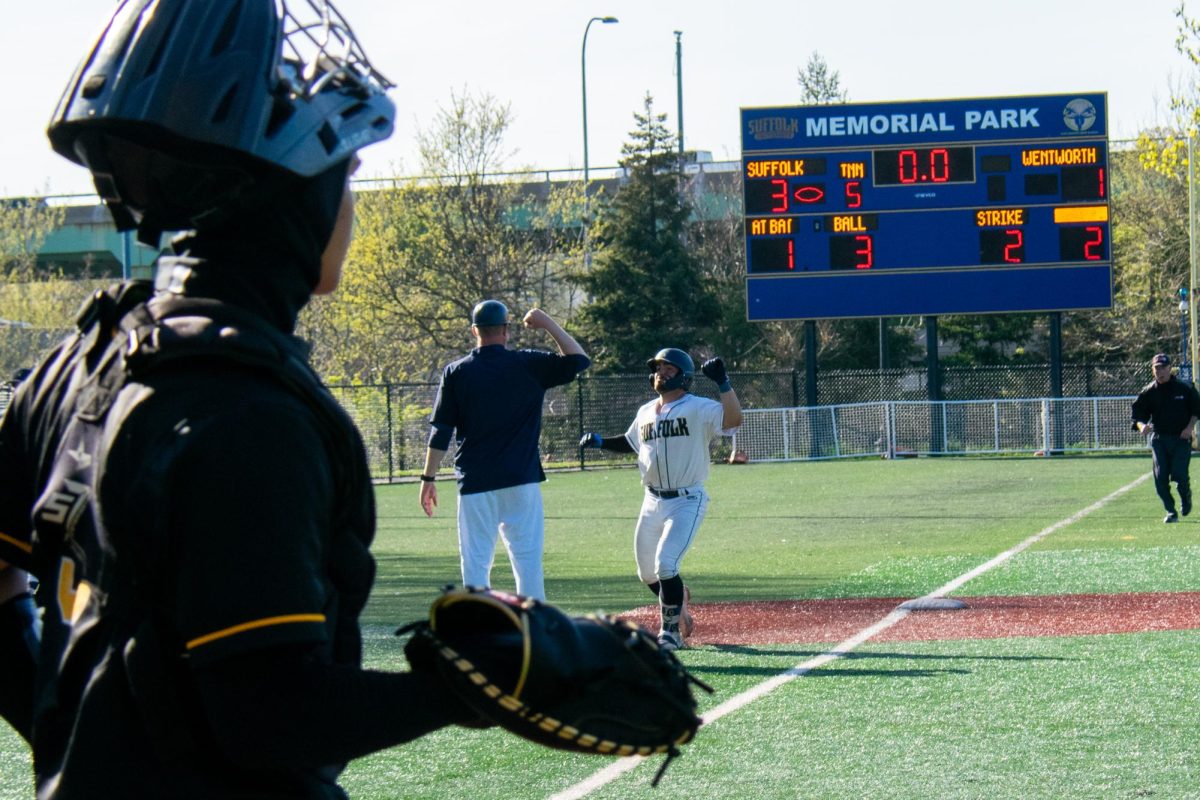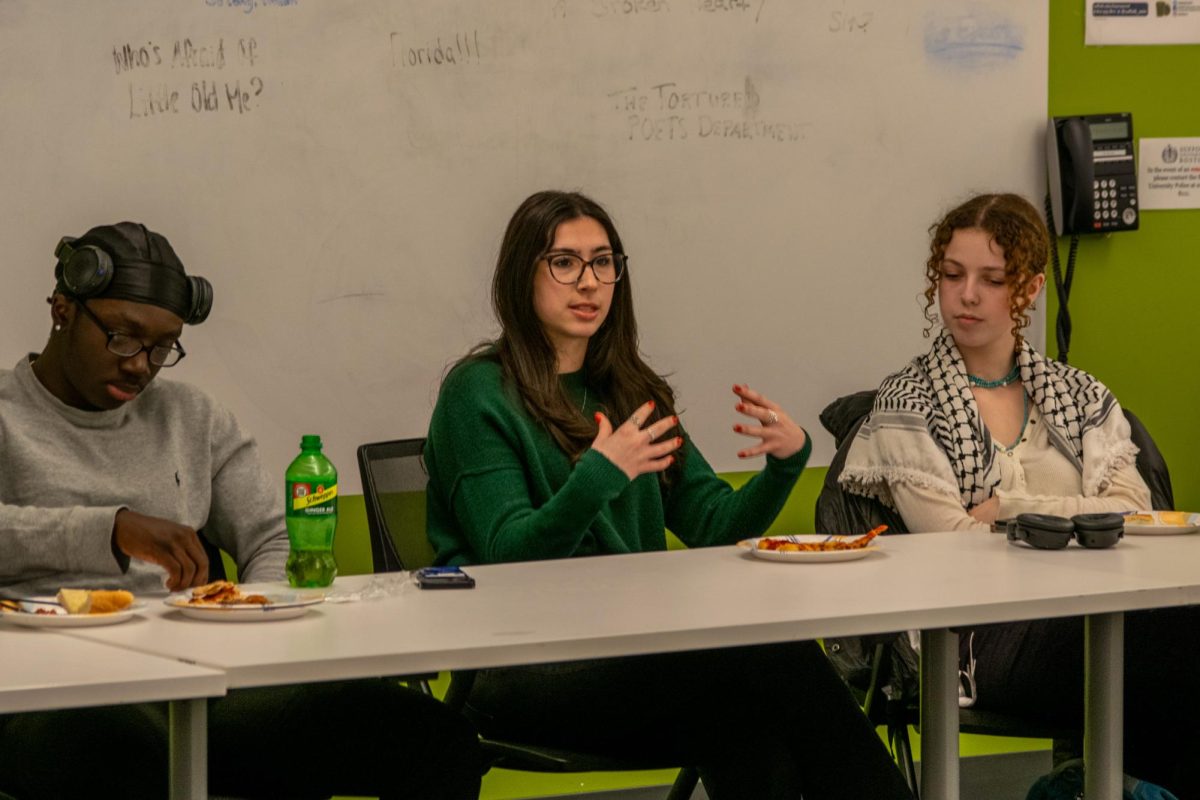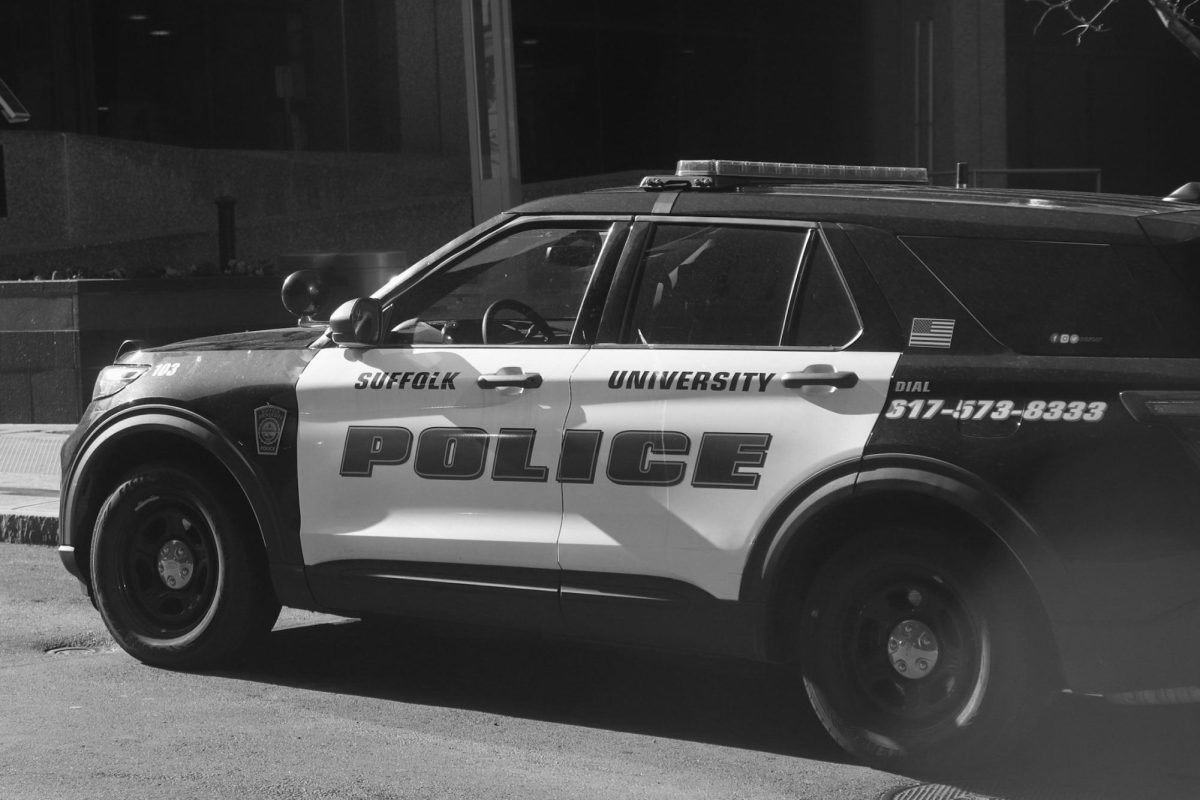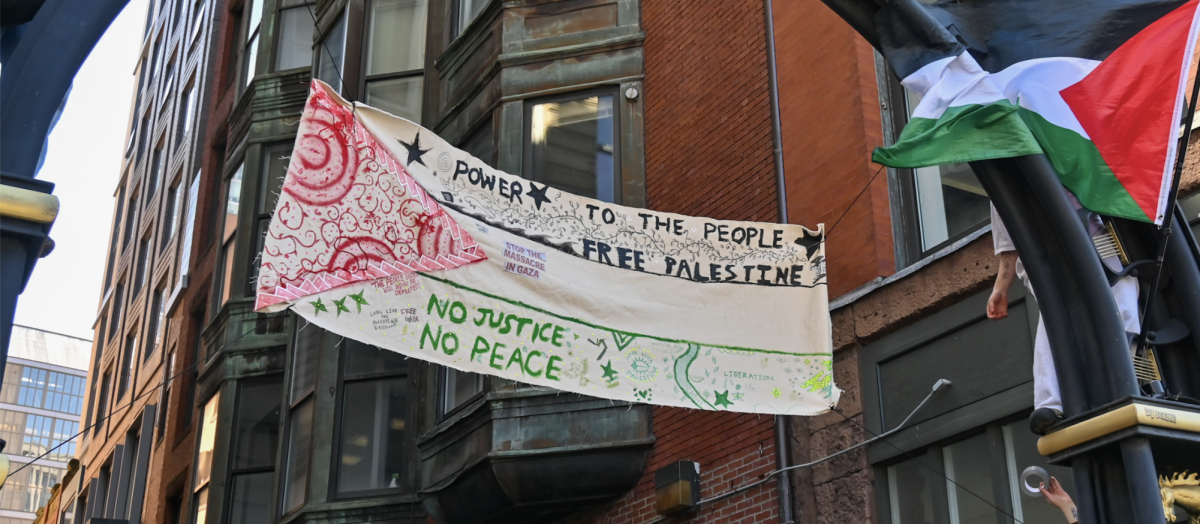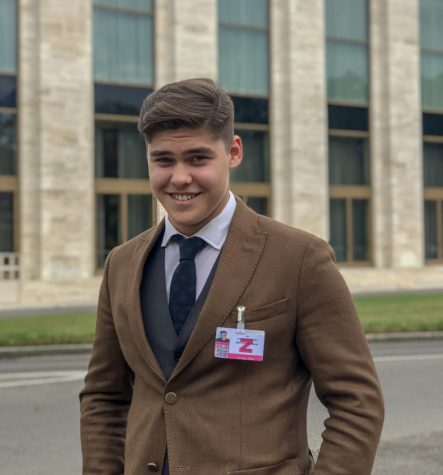While the country prepares to celebrate Veterans Day next week, one Suffolk University veteran has spoken out about his experience in the military and the current motives of the U.S. military.
As a recruitment & education adviser in the Veteran Upward Bound Program, Nicholas Charrette spent more than four years at West Point Military Academy and at Camp Humphreys in the Republic of Korea.
“The army for me was kind of a reset button. It was a way for me to reset my life. Figure out what I want to do, because at the time I was kind of lost,” said Charrette, a veteran working in the Center for Academic Access & Opportunity at Suffolk.
Charrette said that he left the army with a set of important skills like discipline and organization that have continued to help him in his life.
“Also, while serving in Korea we lived in the same barracks with Korean soldiers who were quote-on-quote ‘loaned’ to the United States army for their translating skills,” said Charrette. “It just kind of opened me up to the different cultures and to be able to appreciate whatever different person has to offer.”
There are numerous programs and foundations in Boston that aim to help veterans adapt to civil life, like the Home Base foundation, a partnership with the Red Sox Foundation and Massachusetts General Hospital.
Home Base was designed to overcome common barriers and to care for returning veterans, according to the Foundation’s website.
However, there are many problems veterans face upon their return home, many of them fail to adjust to civic life.
“The homeless veteran population is a huge problem,” said Charrette.
According to the National Alliance to End Homelessness, there are 37,878 homeless veterans in the U.S. That makes up approximately 9% of all homeless adults.
Charrette believes that today’s society often lacks support when it comes to the problems of homeless veterans.
“[People] care about homeless veterans when it’s convenient for them but no one wants to talk about it when it comes to taking money from another group of marginalized people and redirecting it to homeless veterans,” said Charrette.
“You walk by them on the streets every day, you might not even know they are veterans, but I really do thank those people,” said Charrette.
While Charrette is grateful for what he gained from his personal experience in the military, he expressed concern with the current direction of U.S. military operations.
On Oct. 21, U.S. Defense Secretary Mark Esper went to Kabul, Afghanistan, where he announced that U.S. military reduced its authorized strength by 2,000 soldiers, according to The Washington Post.
“I think that a lot of people might agree, veterans or not, that America should not be involved in the Middle-East for two decades,” said Charrette. “Causing destruction and sending over children, essentially, and losing their lives, but there is no end-game.”
Since U.S. operations first started in Afghanistan in October 2001, the U.S. military has lost 2,432 men while 20,639 have suffered injuries, according to the U.S. Department of Defense.
“What I don’t agree with is Syria where the president is pulling out troops,” said Charrette. “I never went to Afghanistan or the Middle East in general, but if you were a veteran who served with Kurdish forces and then all of the sudden you got pulled away it’s like – what are they gonna think of you, what are they gonna think of America?”
Previously, the U.S. military had around 1000 troops in northeastern Syria fighting ISIS alongside the Kurds., according to The New York Times.
President Trump’s withdrawal from the region last month caused negative reactions both among U.S. soldiers who fought in northeastern Syria and their recent allies – the Kurds. According to The New York Times, American soldiers said that they are “ashamed” of their withdrawal and the Kurds claimed that they “got betrayed.”
“To me it’s just going to build more discontent. It sends a message that we don’t care if we pull out in that matter,” said Charrette.
Currently, there are several veterans attending Suffolk University through the Yellow Ribbon GI Program for Veterans and the Veteran Upward Bound Program.
“At least from my knowledge of what veterans services were right before 9/11 they’ve definitely gone better,’’ said Charrette.






